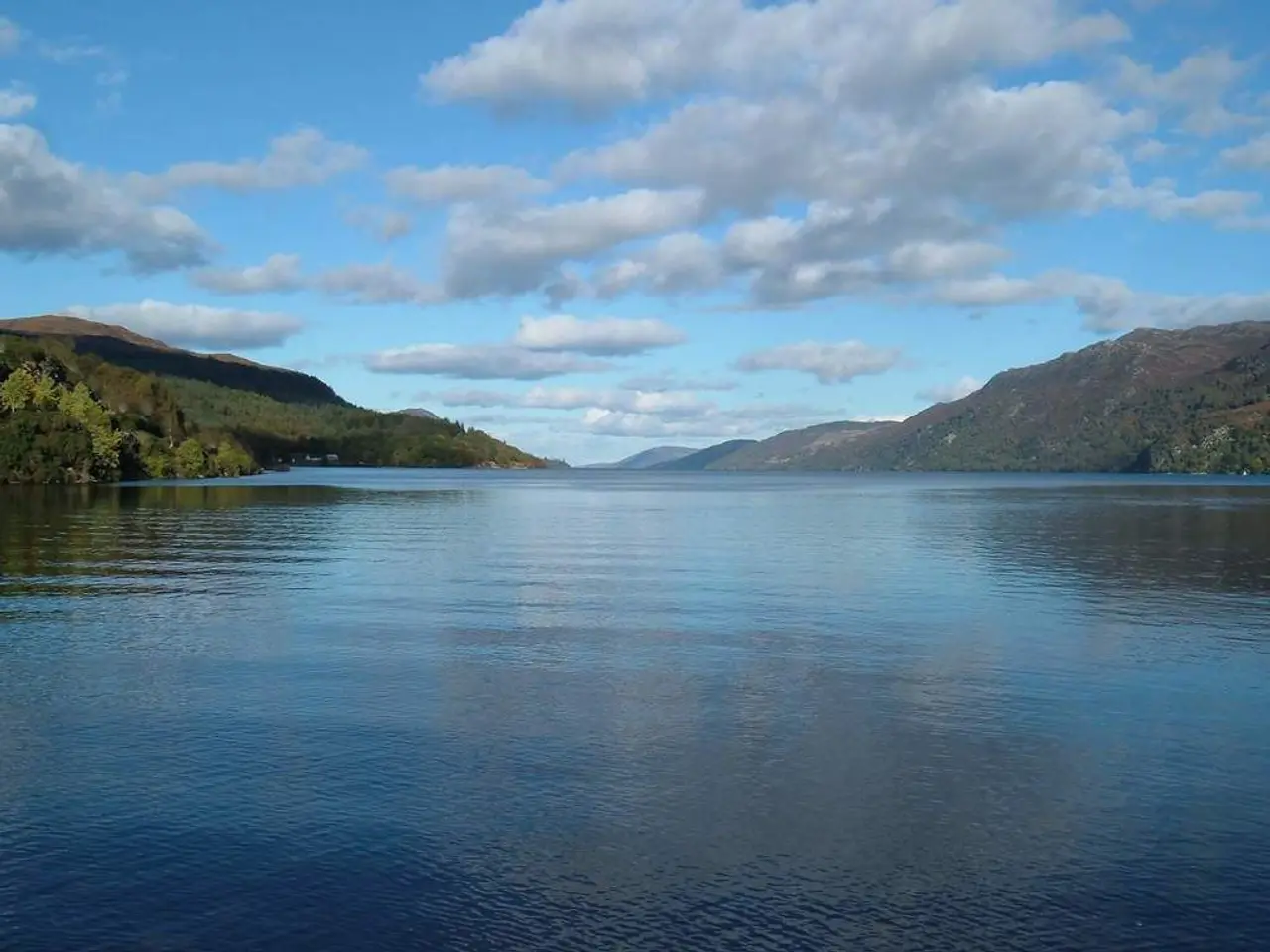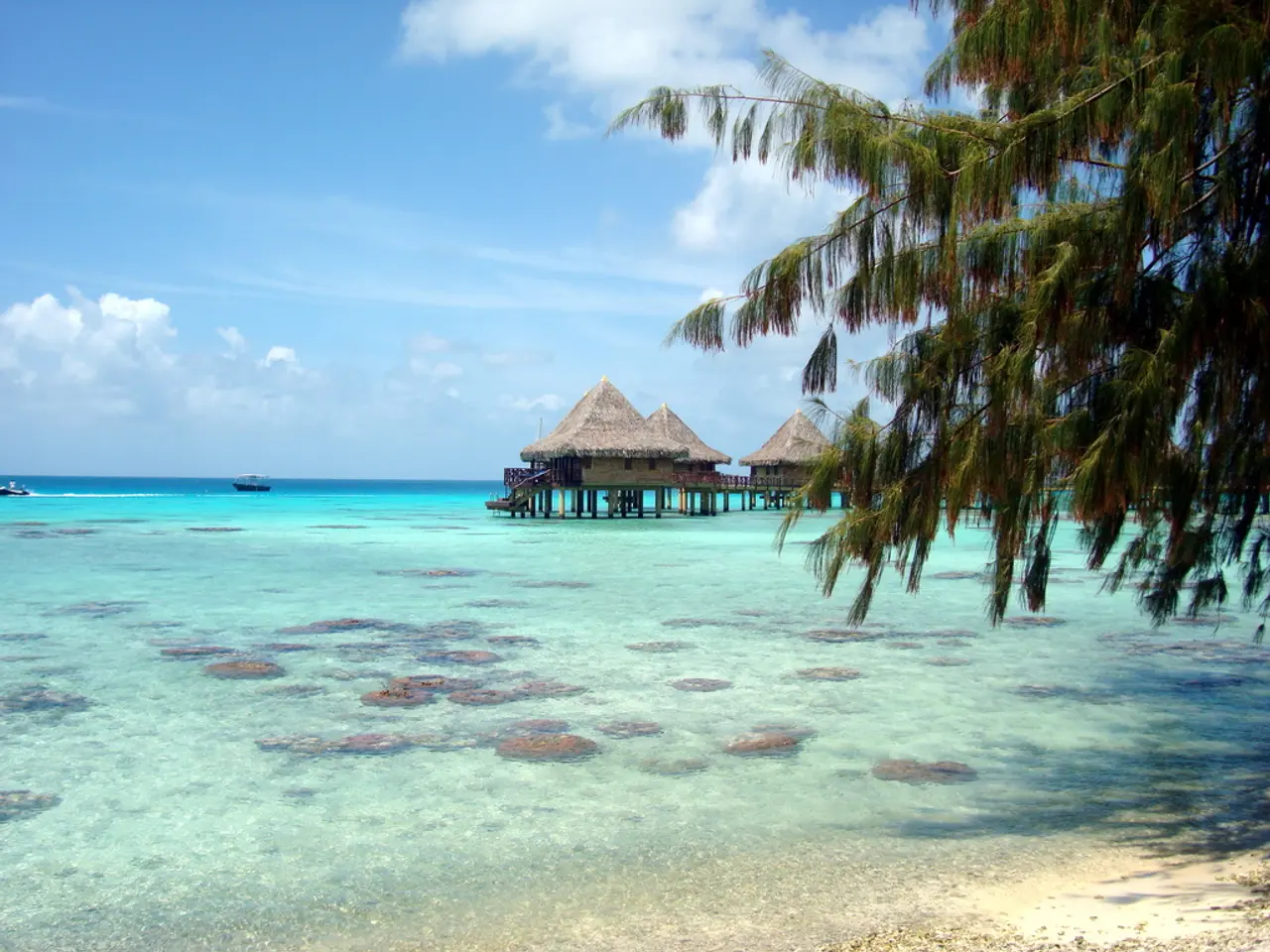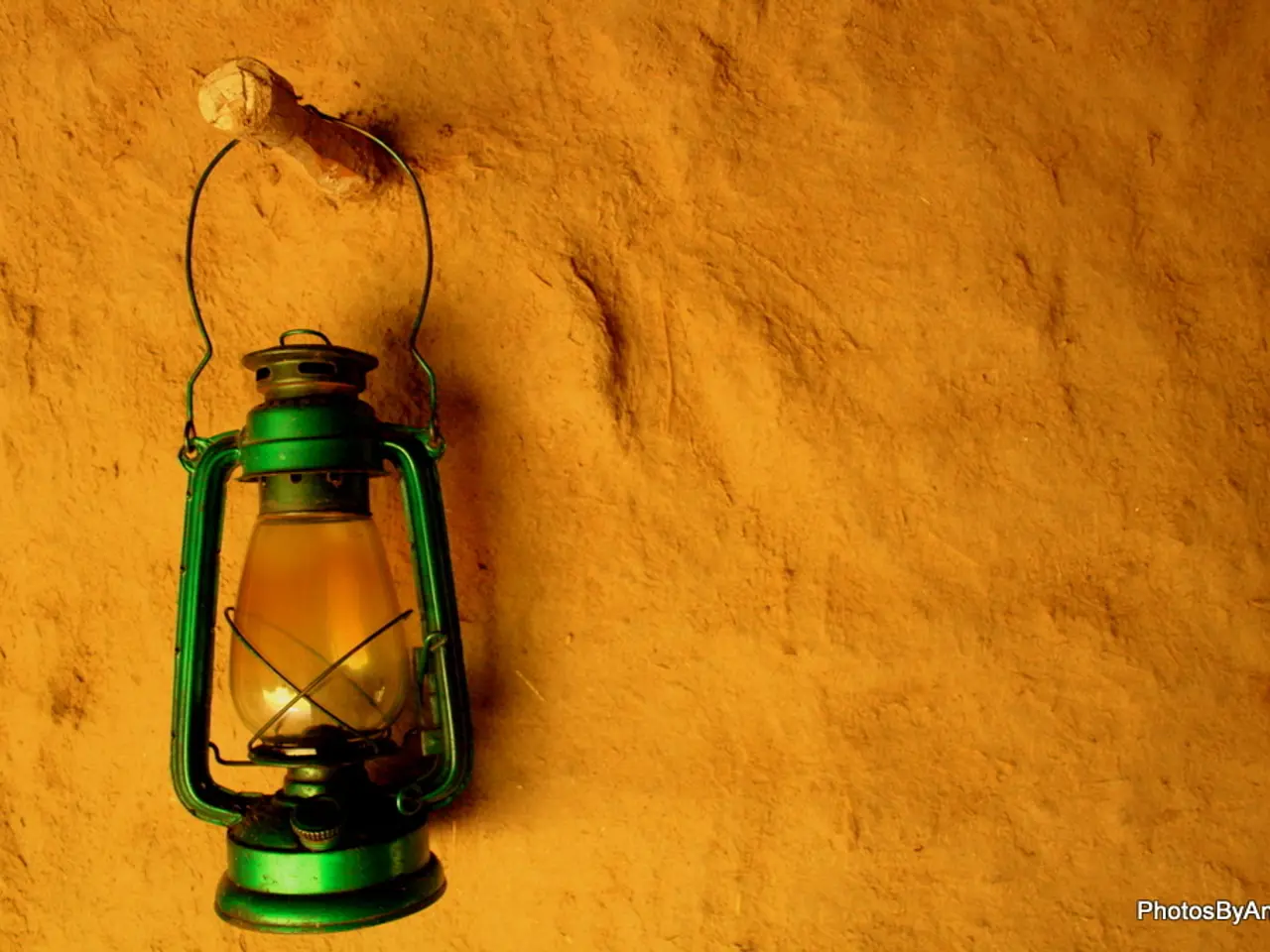Scarce Rainfall in June: Bergland Witnesses Only Half the Normal Amount
In Bergisches Land, Germany, the fifth consecutive month of drought and heatwaves has raised concerns about potential impacts on the region. The Wupperverband, a water management association, has reported that the Wupper and Bever Talsperres have very low water levels due to the prolonged dry period.
According to the German Weather Service (DWD), NRW experienced 267 hours of sunshine in June, which is 45% higher than the average of 184 sunshine hours. This extended period of heat and lack of rainfall has been recorded by the Wupperverband, which has records showing the drought and heatwaves in June.
The low water levels in the Wupper and Bever Talsperres have led the Wupperverband to further reduce the low water release of the Wupper as of July 7th. At the Solingen-Burg wastewater treatment plant, 60 liters were measured in June, which is less than the average of 102 liters. The driest measuring station was the one at the Leverkusen wastewater treatment plant, where 39 liters were recorded in June, significantly less than the average of 80 liters.
The wettest measuring station was the Ronsdorfer Talsperre in Wuppertal, with 85 liters per square meter recorded in June, which is more than the average of 105 liters. However, this has not been enough to offset the overall dry conditions. At the Bever-Talsperre measuring station in Hückeswagen, 55 liters of rain per square meter were recorded in June, which is less than the average of 96 liters.
The prolonged drought can lead to severe water shortages, affecting households, agriculture, and industries relying on water. This could result in restrictions such as hosepipe bans. The agriculture sector may also face economic hardship or shutdowns due to insufficient water and feed, as suggested by the closure of a dairy farm in Bergisches Land during a previous drought in 2012.
Heatwaves and drought increase the risk of soil degradation, reduced river and groundwater levels, and loss of biodiversity in local ecosystems. Higher temperatures can also lead to increased energy demand and impact water-dependent power generation or industrial processes.
Heatwaves raise risks of heat-related illnesses, especially among vulnerable populations. While specific current data for 2025 are lacking, these general impacts are consistent with what prolonged drought and heatwaves cause in the Bergisches Land region and other parts of Germany. Measures like water use restrictions and farm closures highlight the severity of conditions.
The Wupperverband's large wastewater reservoirs are also affected by the drought. At the Wuppertal measuring station Kläranlage Buchenhofen, 61 liters were recorded in June, which is less than the average of 94 liters.
As the region continues to face these challenging conditions, it is essential for individuals, businesses, and authorities to take necessary precautions and work together to mitigate the impacts of the prolonged drought and heatwaves.
[1] Source: Various news articles and reports from 2012 and 2022.
The unexpected spike in temperature and reduced rainfall observed in NRW, Germany, necessitates a closer examination where the science of climate-change comes into play, contributing to the environmental-science discourse about weather patterns. The continued drought and heatwaves have led to an alarming reduction in water levels in the Wupper and Bever Talsperres and wastewater reservoirs, increasing concerns about the potential impacts on the area's ecosystems and local populations.







